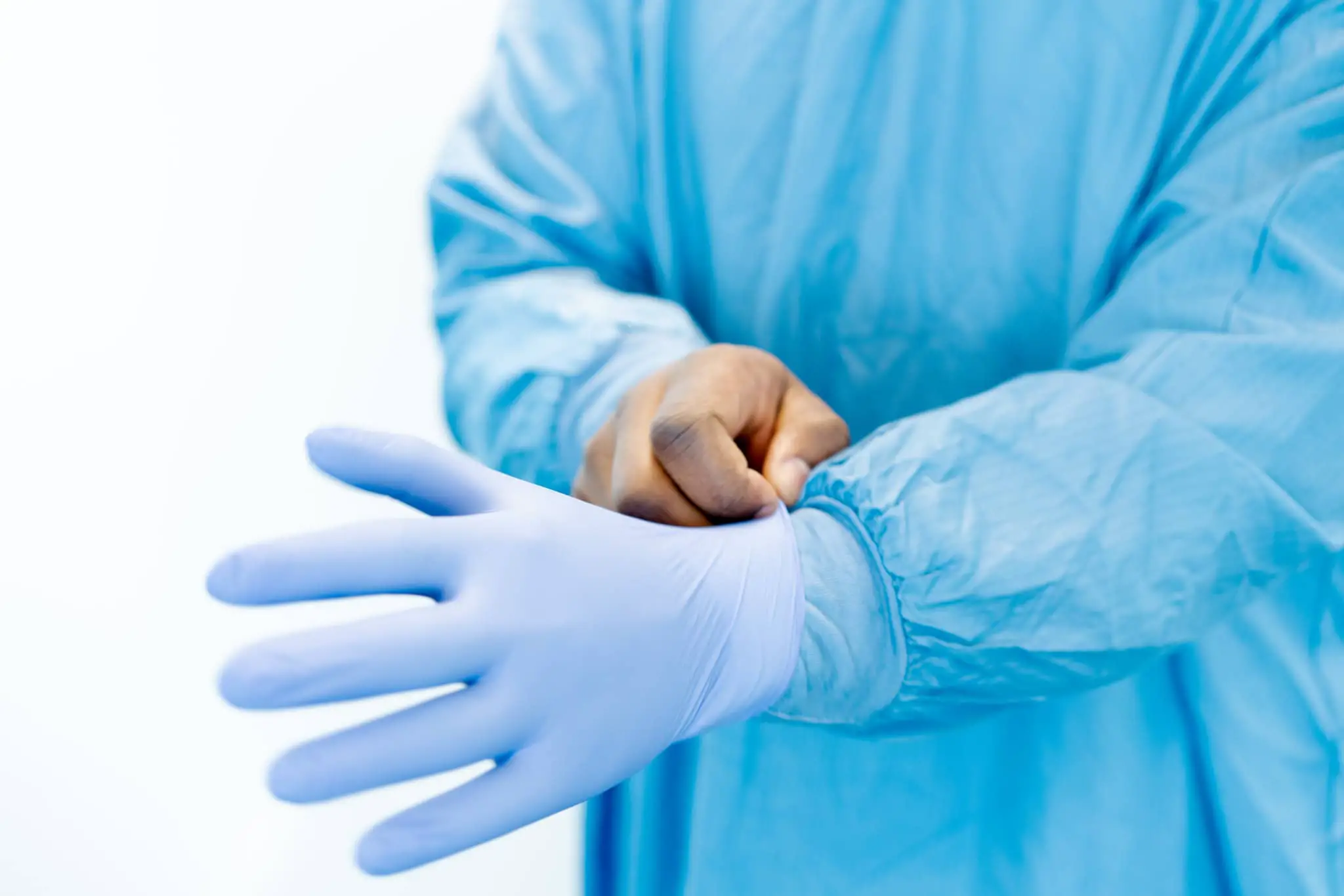Despite calls for more personal protective equipment (PPE) to protect staff against the latest strains of Covid-19, no changes will be made to what will be issued to Isle of Wight NHS Trust teams.
Nationally, fears about the UK variant of Covid, which is thought to be 70 per cent more transmissible, and the South African variant have led to calls for increased PPE levels for frontline workers from trade unions.
However, a review of the guidance from Public Health England (PHE) has said the levels of PPE currently being worn by staff are appropriate.
Webster: Outbreaks not necessarily due to the PPE
Speaking at the meeting of the Isle of Wight NHS Trust board, director of nursing, Alice Webster, said she was pleased with the recommendation from PHE and although there had been a movement within the trust to review the levels, they would not change.
She said,
“The guidance is very clear and we are clear about what they (staff) should be wearing.
“While we have had a number of outbreaks this has not necessarily been due to the PPE they have worn or the way it was worn.”
‘Inappropriate’ to deviate from guidance
Steve Parker, medical director, said to deviate from the national guidance from PHE, would be ‘inappropriate’.
He said while the trust recognised the professional challenge about how people use their PPE and the pressure from trade unions to enhance the level, staff would maintain the current guidance.
Drop in Covid patients
Recently, levels of Covid positive patients currently being treated in St Mary’s Hospital, Newport, have been dropping.
Latest data shows on 9th February, 48 patients occupied Covid beds, compared to a peak in January of 95.
This article is from the BBC’s LDRS (Local Democracy Reporter Service) scheme, which News OnTheWight is part of. Read here to find about more about how that scheme works on the Island. Some alterations and additions may have been made by News OnTheWight. Ed




